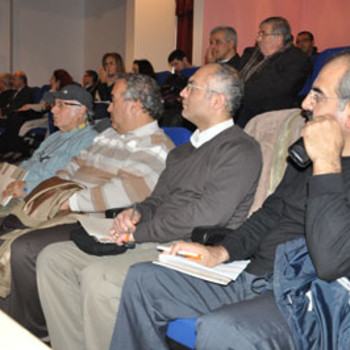How can energy efficiency be increased?
2 Answers
Use the most efficient conversion processes, and minimize the number of energy transformations.
Explanation:
Energy can be neither created nor destroyed, only changed in form. Entropy (disorder) is always increasing, so even the change of energy from one form to another also “loses” energy to the surroundings. Knowing how “efficient” an energy conversion process is helps us to select processes that use the least amount of source energy for the desired final form or use.
For example, a vehicle engine makes several energy conversions. The first is from chemical (potential) energy into thermal energy (heat) in the combustion of the fuel. The second is from that thermal energy to mechanical energy through the engine design. That mechanical energy goes through several other mechanical energy changes from the initial pistons to the final drive of the wheel axles. Some of the mechanical energy is converted to electrical energy by generators. EVERY time the energy is changed in form or application, SOME of it is lost to the surroundings as thermal (heat) energy.
Thus, we NEVER get “100%” of the available energy from a source into useful work. In this example, we may only end up using 15-30% of the chemical energy contained in the fuel! See also: https://www.fueleconomy.gov/feg/atv.shtml for automotive details.
This is also true for power generation, whether from coal, oil, hydro, nuclear or solar. To really understand environmental impacts it is necessary to look at the TOTAL cost of energy production, not just the final stage! Construction materials, costs, environmental impacts (pollution), land and water use, operating costs, waste materials, AND production and distribution efficiencies all need to be evaluated carefully before we can really decide what is a “better” energy technology.
Use energy efficient appliances.
Explanation:
Instead of using a regular lamb, use LED technology.
Prefer higher MPG car instead of buying a fancy car. Or for better, use electric vehicle and make sure that electricity comes from renewables (solar energy for example).
For cars, check your tyres (tires) frequently to save fuel. Buy fuel when it is cold (early morning or night hours) because if it is hot some fuel evaporates during pumping gas.
Keep your refrigerator at the dark (cold) corner. Instead of using Air Conditioners at home, open your windows if it is windy.
Locate your building before construction so good that it will not need sunshine during winter and it will not need air conditioner during summer. An air conditioner consumes 10 times more energy compared to a regular ventilator.


